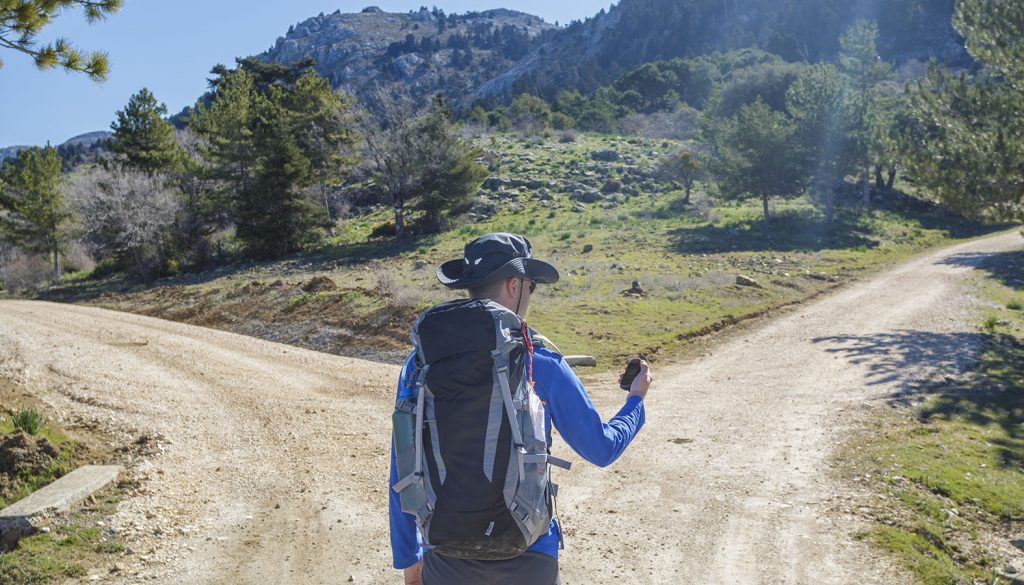There are many human virtues, but there are four on which all the others depend: prudence, justice, fortitude, and temperance.
We begin our Lenten reflections with these virtues, which are called “cardinal” (or “pivotal”), because they play such a crucial role in our character.
In ancient times, prudence was considered the first of the virtues and was compared to the steering mechanism that keeps a boat on course.
We remember the story that Jesus told of the wise and foolish virgins. The virgins were instructed to go out to meet the bridegroom. The foolish ones went out without bringing oil for their lamps. They were not prepared, and had to return back to get more oil. While they were away, the bridegroom finally came and they missed him.
This parable teaches us about prudence. We need to understand the goal of our lives and we need to make sure that we are ordering our lives in such a way that we can realize that goal.
St. Thomas Aquinas defined prudence as “right reason in action.”
We are not meant to live by our appetites or feelings. God expects us to live by reason, and prudence directs our thoughts and actions according to reason and always in light of our dignity as children of God, made in his image.
Prudence means knowing the truth and knowing reality. Not truth and reality as they are proposed to us by secular society. St. Paul warned of what he called the “wisdom of the world.”
This still applies. Our secular society teaches a worldly wisdom that defines reality according to earthly, material terms, without reference to spiritual values or to God or his purposes for our life.
The prudent person can see reality accurately and act accordingly, understanding that our true nature is spiritual and that there is more to life than our immediate needs.
Jesus taught us to seek his kingdom first, before we worry about earthly concerns like what we will eat or wear. He told us to store up treasure in heaven, not to try to gather treasures on earth.
His wisdom runs counter to the wisdom of the world. Prudence helps us to resist the temptation to think the way the world thinks.
If we want to get to heaven, we need to live in a way that will get us there. As Jesus said, no king who wishes to build a tower or fight a battle starts out without a plan and calculations for the outcome.
We, too, need to make assessments and judgments. We need to do certain things and avoid doing other things. For that we need prudence.
Prudence involves thinking through and analyzing situations, making judgments about what is a proper course of action, and then determining how best to carry it out in a way that is consistent with our purposes as children of God.
As with sports, music, or any art or trade, with virtue practice makes perfect. It takes discipline and effort, but the more we do it, the more it becomes second nature, a part of who we are.
So how do we practice and grow in prudence?
First, we need to reflect often on the purpose of our lives, which is to be holy by becoming more and more like Jesus and doing God’s will, not our own. It is helpful to read the Sermon on the Mount often. This is the plan for Christian life and reminds us of our call to be holy as God is holy.
We need to get in the habit of evaluating everything in light of our goal. Simple reflections and questions can help us grow in prudence: What is the right thing to do? What is most in keeping with my identity as a child of God created to love him and love my neighbor as myself? What does God want in this moment?
We also need to develop the habit of thinking before we act and not simply responding when things happen. We need to take time to think through possible implications and outcomes of different ways of acting.
But we should not mistake prudence for fear or excessive caution and inaction. Prudence requires us to remain firm in what the saints call “the duty of the moment.” And prudence will often make us bold and daring because prudence shows us what is right and how to achieve it.
Prudence also includes being humble enough to seek good advice. It requires us to look ahead and also to look back. The prudent person will honestly examine and learn from past experience, in order to better understand what to do and what not to do in the future.
Pray for me this week and I will pray for you.
And let us ask our Blessed Mother Mary to help us to grow this week in prudence, as we follow her Son on this Lenten journey.

